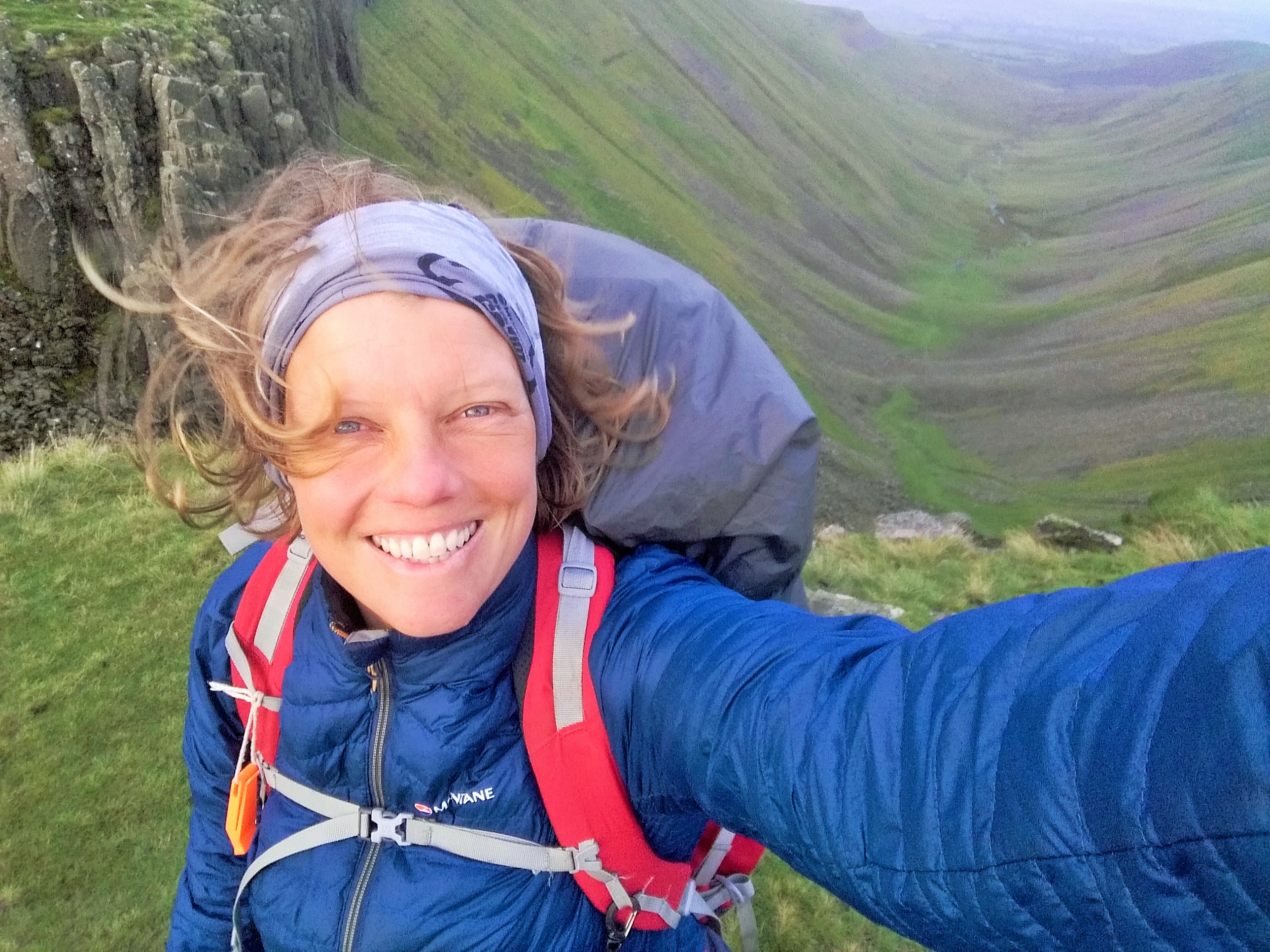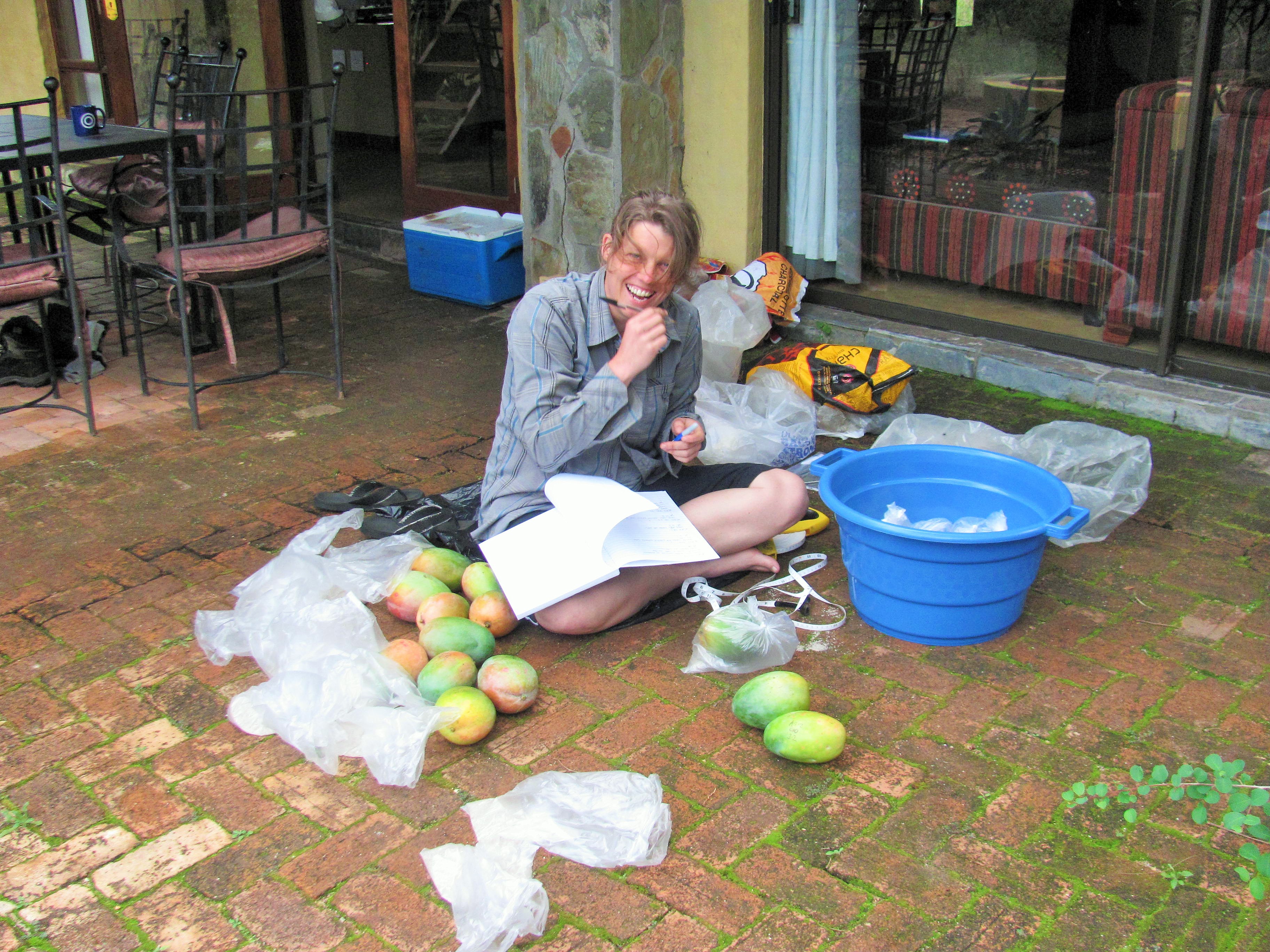We are looking back on some of our MSc graduates who have excelled in scientific research, ecology and conservation around the world since studying with us.
Today we meet Wiebke who graduated from MSc Conservation and Biodiversity in 2014 and now works as a Data Management Officer for Public Health Scotland (PHS).

Hi Wiebke, it’s been a few years since you studied with us, why don’t you tell us a bit about your career in that time that led you to where you are now?
From 2014 until 2021 I worked for the University of Exeter in various capacities: Teaching Technician, Assistant Laboratory Manager and Named Animal Care and Welfare Officer.
In February 2021 I started my role with PHS, which involved a mad move from Cornwall to Glasgow during a global pandemic and national lockdown. It just goes to show you can find new challenges in the most unlikely times and when you least expect it!
In my current role I am responsible for data quality and upkeep of various databases retaining data on notifiable diseases, e.g. meningococcal disease and tuberculosis.
Why don’t you give us a bit of background about what made you choose to study your MSc with us at the University of Exeter Cornwall Campus?
I was a mature student tackling my MSc after spending 12 years working at biological field stations. I felt quite nervous going back to university after such a long pause but it turned out really great. I applied for my MSc while I was working in Costa Rica, so I did not have the chance to visit any of the universities. I looked at some other places that friends had recommended, but ultimately the syllabus of the MSc Conservation and Biodiversity was the decisive factor.
The most important aspect for me was the course contents, the location was an added bonus. After a 12 year break from academia I knew I needed to brush up on key skills, I wanted to get R skills and I was keen to learn Outdoor First Aid. There were great opportunities to choose from a wide range of modules and to try different things, like genetic lab work and ecological consultancy. No other course offered that.
What are your highlights from studying at the University of Exeter?
The Kenya field trip had a huge impact and was really special for me. I always had wanted to go to Africa and never quite thought I would get the chance. And then my wildest dreams came true and I was able to do my final project on a fully funded placement in South Africa! It involved digging maggots out of liquidising, rotting mangoes. The glamour of fieldwork!
If you are interested in ecology, geology, conservation and marine biology Cornwall offers a pretty unique classroom ! The surrounding area is visually stunning but there is also a lot of information. Just go down to the local beach during low tide and spend some time looking into rock pools, you learn so much. Cornwall also has a very vibrant conservation network with multiple charities and research projects being located there. Lots of opportunities to get involved!
We are glad you enjoy it as much as we do. How do you think the MSc helped to prepare you for your career?
For my current role as data manager, having had R training is very useful. Apart from that, being trained in a scientific subject, applying methodical and critical thinking is essential and the MSc degree has certainly provided that. The degree offered plenty of opportunity to develop my writing and presentation skills which helped with applications and job interviews.

Why did you choose a career in Biology – is there anything in particular you enjoy most?
I choose a career in biology following my love for animals and fascination with the natural environment, but I could never quite make up my mind which subject I wanted to focus on.
I learned that I was a talented field worker and the field was always my happy place, collecting data standing knee deep in a mud puddle or crawling through thick undergrowth. The gnarlier the better! However, being a field worker did not pay much – if anything at all.
I am driven by opportunities to learn and continuously developed my skills. The professional and personal growth that came with each job I had since graduating eventually led to my current employment. Not in a million years did I think that one day I would be working on human health data and be (home) office based, but I really love it. I always enjoyed working with data, it never gets boring as you just need to keep asking questions to explore. I am learning a lot about epidemiology and I feel my work makes an important positive impact.
Do you have any advice for those looking to pursue something similar?
In the academic environment you are always surrounded by brilliant people. Some people have found their vocation early and are really driven in the pursuit of their subject. It might knock your confidence a bit because you have no clue what you want to do. It’s fine! Keep your eyes and ears open. Explore! Do not be shy to step out of your comfort zone and try something new. It may not be what you are looking for, or it will open up new opportunities.
Finally, do you have any plans for the future?
I am still quite new in my role so there is plenty to learn. There are opportunities to step up to roles such as data analyst, programmer and health scientist.
Outside my work life I am developing my mountain skills and train for a Mountain Leader Certification. While living in Cornwall I started trail running and fell in love with the pursuit of travelling long distances on foot. I have a lot of ideas to combine my background as biologist and my love for hiking into some creative projects.
Thank you Wiebke!
If you want to read more profiles from MSc Biodiversity & Conservation graduates follow this link or explore our Graduate in Focus homepage to learn more about the degree programmes we have on offer!

